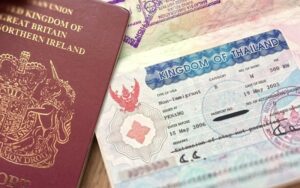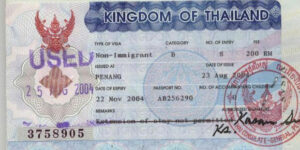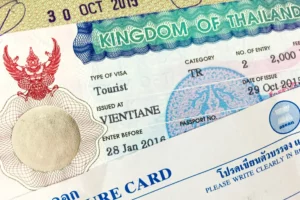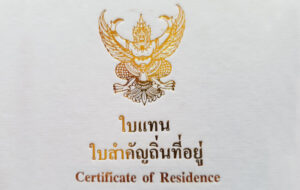Offshore Investment in Asia. Asia, particularly Southeast Asia, has long been a hotspot for offshore investments due to its rapidly growing economies, strategic geographic location, and favorable business environments. Thailand, as one of the region’s most dynamic economies, offers a plethora of opportunities for investors seeking to expand their portfolios or establish a foothold in Asia. However, like any investment venture, offshore investments in Thailand require careful planning, understanding of local regulations, and strategic foresight. This article delves into the intricacies of offshore investment in Asia, with a focus on business opportunities and considerations in Thailand.
The Appeal of Offshore Investment in Asia
Offshore investment in Asia has garnered significant attention from global investors due to several compelling factors:
- High-Growth Economies: Asia is home to some of the world’s fastest-growing economies. Countries like China, India, Vietnam, and Thailand have seen substantial economic growth over the past few decades, making them attractive destinations for investment.
- Strategic Geographic Location: Asia’s central location between the West and East, particularly Southeast Asia, provides easy access to key global markets. Thailand, positioned in the heart of ASEAN, serves as a gateway to both South and East Asia, making it an ideal hub for regional operations.
- Favorable Investment Climate: Many Asian countries, including Thailand, have implemented policies to attract foreign direct investment (FDI). These include tax incentives, streamlined business registration processes, and bilateral trade agreements that enhance market access.
- Diversification of Investment Portfolios: Offshore investments in Asia allow investors to diversify their portfolios, reducing risk by spreading investments across different regions and sectors. This diversification is particularly valuable in volatile global markets.
Why Choose Thailand for Offshore Investment?
Thailand stands out as a prime destination for offshore investment in Asia due to its stable economic environment, pro-business government policies, and robust infrastructure. Here are some key reasons why Thailand is a favorable choice for offshore investment:
- Economic Stability and Growth: Thailand has demonstrated consistent economic growth, with a GDP that has steadily increased over the years. The country’s diverse economy, which includes strong manufacturing, agriculture, tourism, and service sectors, provides a solid foundation for investment.
- Business-Friendly Policies: The Thai government actively promotes foreign investment through the Board of Investment (BOI). The BOI offers incentives such as tax holidays, exemptions from import duties on machinery, and 100% foreign ownership in certain sectors. These incentives make it easier and more profitable for foreign investors to establish businesses in Thailand.
- Strategic Location: Thailand’s central location in Southeast Asia provides easy access to the entire ASEAN region, which includes 10 member countries with a combined population of over 650 million people. This strategic positioning is particularly advantageous for businesses involved in manufacturing, logistics, and trade.
- Infrastructure and Connectivity: Thailand boasts well-developed infrastructure, including modern transportation networks, advanced telecommunications, and extensive logistics capabilities. The country’s deep-sea ports, international airports, and highways facilitate efficient trade and movement of goods within the region and beyond.
- Skilled Workforce: Thailand has a large, skilled workforce that is well-educated and capable of supporting a wide range of industries, from manufacturing and technology to services and finance. The availability of skilled labor at competitive costs is a significant advantage for businesses looking to optimize their operations.
Key Sectors for Offshore Investment in Thailand
Investors considering offshore investments in Thailand can explore various sectors, each with its own unique opportunities and challenges. Here are some of the key sectors attracting foreign investment:
- Manufacturing and Export: Thailand is a global manufacturing hub, particularly for industries such as automotive, electronics, and textiles. The country’s well-established supply chains, coupled with its free trade agreements with various countries, make it an ideal location for manufacturing operations aimed at both regional and global markets.
- Real Estate and Property Development: Thailand’s real estate market has been thriving, driven by both domestic and foreign demand. Investors can explore opportunities in residential, commercial, and industrial real estate. Major cities like Bangkok, Phuket, and Pattaya offer lucrative prospects for property development and investment.
- Tourism and Hospitality: Thailand is one of the most popular tourist destinations in the world, attracting millions of visitors annually. The tourism sector presents numerous opportunities for investment in hotels, resorts, travel agencies, and related services. The government’s efforts to promote sustainable tourism further enhance the sector’s long-term viability.
- Renewable Energy: Thailand has been making strides in renewable energy, particularly in solar and wind power. The government’s commitment to increasing the share of renewable energy in the national grid provides opportunities for investment in green energy projects.
- Technology and Innovation: Thailand’s digital economy is growing rapidly, supported by government initiatives such as Thailand 4.0, which aims to transform the country into a high-tech, innovative economy. Opportunities abound in sectors such as fintech, e-commerce, artificial intelligence, and biotechnology.
Legal and Regulatory Considerations
While Thailand offers a favorable environment for offshore investment, it is crucial for investors to understand the legal and regulatory framework governing business activities in the country. Key considerations include:
- Foreign Business Act (FBA): The FBA regulates foreign ownership in Thailand, restricting foreign participation in certain sectors unless special permission or BOI incentives are obtained. It is essential for investors to review the FBA to determine whether their business activities are subject to restrictions.
- Corporate Structure: Choosing the right corporate structure is vital for ensuring compliance with Thai laws and optimizing tax efficiency. Common structures include wholly foreign-owned enterprises, joint ventures, and representative offices. Each structure has its own set of legal requirements and tax implications.
- Taxation: Understanding Thailand’s tax regime is essential for effective financial planning. Thailand has a corporate income tax rate of 20%, but various tax incentives and exemptions are available through the BOI. Additionally, the country has entered into double taxation agreements with numerous countries to prevent double taxation of income.
- Labor Laws: Thailand’s labor laws set out the rights and obligations of employers and employees, including minimum wage, working hours, and social security contributions. Compliance with labor regulations is crucial to maintaining good relations with the workforce and avoiding legal disputes.
- Intellectual Property Protection: Protecting intellectual property (IP) is a key concern for foreign investors, particularly those in technology and innovation sectors. Thailand has a comprehensive IP protection framework, and it is advisable to register trademarks, patents, and copyrights to safeguard business interests.
Challenges and Risk Management
While Thailand presents numerous opportunities for offshore investment, it is not without challenges. Potential risks include:
- Political Uncertainty: Thailand has experienced periods of political instability, which can impact investor confidence and economic stability. Investors should stay informed about the political climate and consider risk mitigation strategies, such as political risk insurance.
- Cultural Differences: Understanding and navigating cultural differences is important for successful business operations in Thailand. Building strong relationships with local partners, understanding Thai business etiquette, and respecting local customs can help mitigate cultural risks.
- Regulatory Changes: Thailand’s regulatory environment can be subject to changes, particularly in sectors that are heavily regulated. Investors should monitor legal developments and engage local legal counsel to ensure compliance with current regulations.
- Currency Fluctuations: The Thai baht can experience fluctuations in value against other major currencies. Investors should consider hedging strategies to protect against adverse currency movements.
Conclusion
Offshore investment in Asia, particularly in Thailand, offers significant potential for growth and profitability. Thailand’s strategic location, robust economy, and pro-business policies make it an attractive destination for foreign investors. However, success in offshore investment requires a deep understanding of the local market, careful planning, and proactive risk management. By navigating the complexities of the Thai business environment with diligence and foresight, investors can capitalize on the myriad opportunities that Thailand has to offer.















